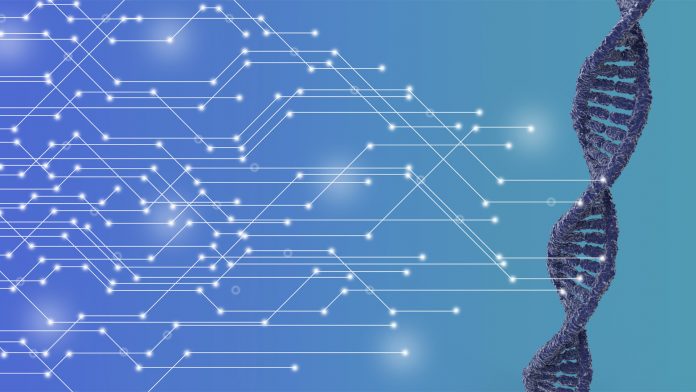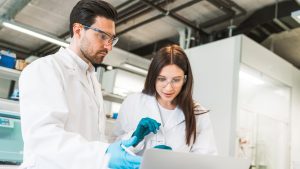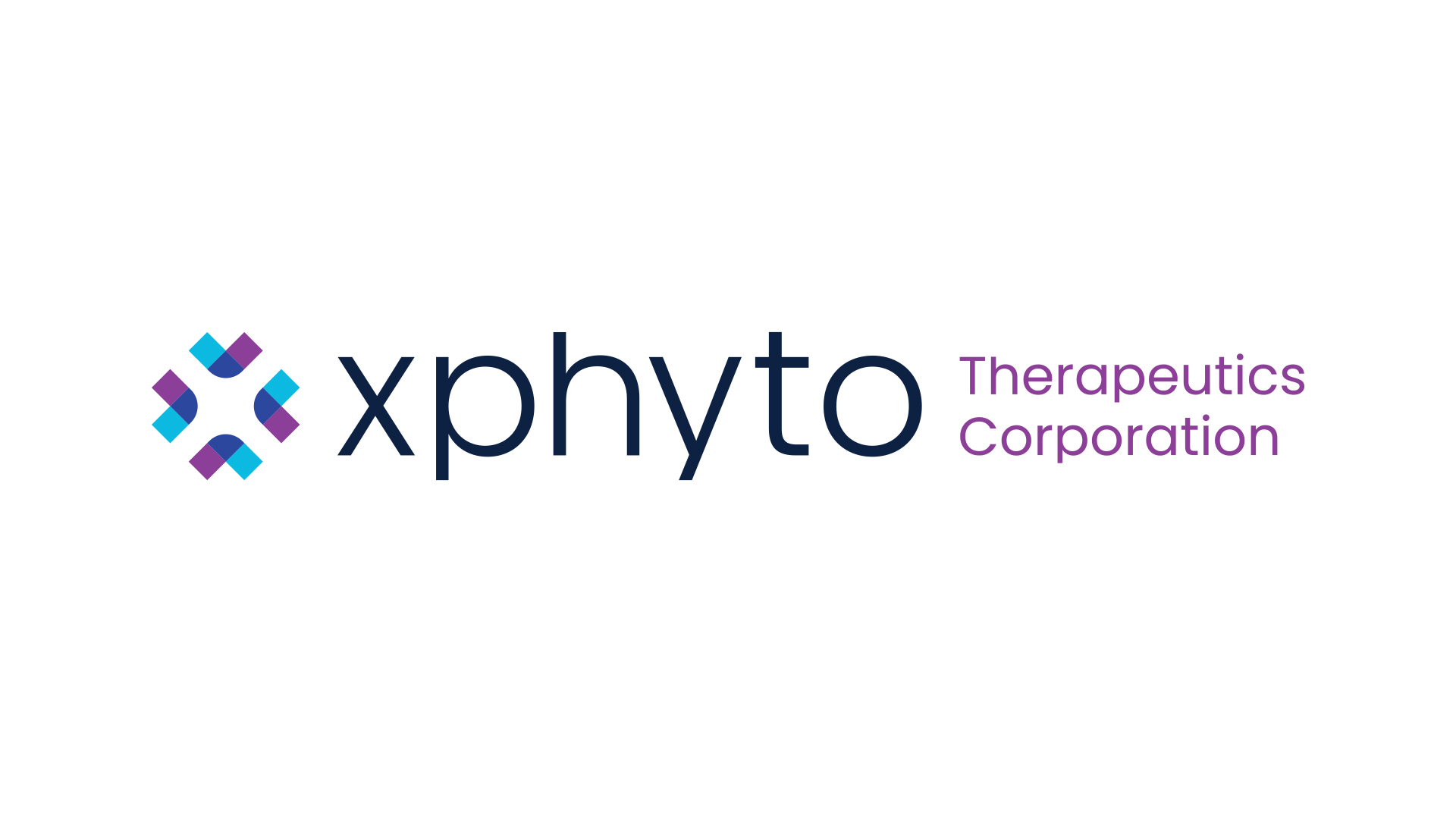
Testing for coronaviruses may soon take no more than a couple of minutes thanks to XPhyto’s enzyme-based biosensor diagnostic technology.
A Canadian-headquartered life sciences company called XPhyto Therapeutics believes it has innovated a simple, self-administered, enzyme-activated biosensor for the detection of COVID-19. Notably, the company is targeting the European commercial launch of this highly disruptive, low-cost, easy-to-use, orally dissolvable biosensor product as soon as possible.
Currently, most of Europe relies on antigen testing. These tests are very popular because they are fast and inexpensive and are ideally suited to point-of-care testing sites.
In Germany alone, tens of millions of people are tested every day in thousands of impromptu test sites. The Germans call it COVID-19 “rapid testing mania.” It involves daily, on-the-spot antigen testing as a go-to screening process for people in factories, offices, schools, day-care centres, bars, restaurants, soccer matches, and so on.
That said, antigen tests are also controversial because they can sometimes generate false readings, unlike the definitive, gold-standard PCR (molecular) testing that is conducted by medical professionals in a centralised lab. This explains why antigen testing is falling out of favour in North America and Europe. It is not considered to be accurate enough to be a reliable proof of a negative COVID status for international travel.
This is where XPhyto sees its opportunity to become pioneering in the multi-billion-dollar diagnostics industry. The company has already made impressive inroads into this burgeoning business via a collaboration with Stuttgart-based 3a Diagnostics GmbH – a world-leader in developing disease-detecting medical innovations that XPhyto is in the process of acquiring.
This joint venture has so far resulted in the commercialisation of a super-fast coronavirus PCR testing system, named COVID-ID Lab, which is registered within the European Union as a commercial in-vitro diagnostic (CE-IVD) test.
Biosensors: the next generation of rapid disease detection
XPhyto expects to also take rapid testing to the next level and intends to play a key role in taming the pandemic in Europe and elsewhere in 2022, thanks to the recent innovation of its enzyme-based biosensor technologies.
In fact, XPhyto is developing a full pipeline of peptide-based biosensor screening tests for bacterial and viral infectious diseases – which is a burgeoning multi-billion dollar market segment.
The company anticipates that these biosensors will become a particularly valuable coronavirus diagnostics tool in Germany. They are expected to be inexpensive to manufacture and become a low-cost, over-the-counter thin-film oral product that is both faster and a more reliable self-administered test than antigen testing.
In fact, XPhyto has already announced that it has now identified the first saliva-activated biosensor molecule for the detection of a COVID-19 infection. Plus, it is in the process of commercialising its first biosensor product in Germany – one that is designed to detect periodontal disease.
Here is how this proprietary innovation works: these biosensors are a combination (chemical conjugate) of a pathogen specific biosensor molecule and an extreme (but safe) bitter compound that can signal the presence of disease.
More specifically, when the biosensor is exposed to specific bacterial and viral enzymes, it triggers biosensor activation and the release of an extremely bitter-tasting compound, alerting its user to the presence of the specific pathogen.
This oral screening technology is designed to instantly detect a variety of bacterial and viral infectious diseases. The product pipeline includes biosensor products for influenza A, stomatitis, periimplantitis, periodontitis, and group A Streptococcus.
Even though biosensors may not seem like a familiar term to many readers, it will not long remain so, but become commonplace in much the same way as has the term coronavirus. It is worth noting that the market valuation of biosensors is expected to reach $42 billion by 2027, according to the Delaware-based market intelligence firm Global Market Insights (GMI). This would effectively nearly double the biosensor marketplace in size within a few short years.
The Global Market says that biosensors are expected to take on an increasingly integral role in containing and curtailing outbreaks of disease: “Their role in fighting coronaviruses cannot be overstated either.
COVID-19 has positively impacted the global biosensors market. These advanced biosensors are employed not only for real-time COVID-19 detection but also as a global screening tool to address control, surveillance, and preparedness in the event of future outbreaks.”
Covid-ID Lab: perhaps the fastest PCR test in the world
XPhyto is already proving to be a trailblazer in the development of disease-detecting diagnostics. To this point, it recently launched a PCR testing system in Germany that essentially combines the accuracy of PCR testing with the speed of disposable screening tests. This, in itself, represents a major innovation within this sector.

According to XPhyto’s German COO, Wolfgang Probst, the product – COVID-ID Lab – is especially disruptive because of its fast turnaround speed, which is only 25 minutes: “COVID-ID Lab provides diagnostic level accuracy in minutes at the point-of-care. It is a specialised product that is designed to fill the market gap between disposable antigen tests and centralised automated PCR systems.”
This portable testing system is especially well suited to transportation hubs, border crossings, care facilities, schools, pharmacies, cruise ship terminals, and hospitality settings – particularly venues where space is at a premium and testing turnaround times need to be especially fast and results reliable. The product is already being used at pop-up testing sites in Berlin, as well as select pharmacies.
In essence, the advent of super-fast, point-of-care PCR testing in a diversity of real-world settings is a breakthrough. It effectively decentralises the whole testing process, making it logistically possible to provide on-site testing and results at many locations simultaneously.
As countries tentatively re-open their economies, there is growing consensus that rapid PCR screening in point-of-care settings will be integral to keeping economies open while still protecting the world’s population – particularly vulnerable citizens.
By being able to test, trace and quarantine anyone who is sick, health authorities should also be able to break the chains of transmission and finally bring COVID-19 infection rates and their variants under control.
The new reality: testing, testing, testing
It is worth noting that the need for cheap, fast, highly accurate, easy-to-perform testing will not subside any time soon. This is because testing for COVID-19, its variants and future coronaviruses will be here to stay for the foreseeable future, according to health care industry experts.

At the very least, mass testing will remain our most effective tool for years to come for monitoring transmission, regardless of how many people are vaccinated this year.
Such realities bode well for the mass adoption of inexpensive, but fast and highly accurate diagnostic tools for the detection of highly infectious diseases, especially coronaviruses.
To this point, XPhyto is at the forefront of the drive in Europe to make PCR testing faster and more accessible in a broad range of point of care settings. It is currently in the process of rolling out the deployment of its COVID-ID Lab testing system in Germany, which offers a very fast turnaround time of only 25 minutes.
In terms of self-administered testing, XPhyto is also innovating a suite of biosensors for the detection of a variety of diseases, which include COVID-19 and other coronaviruses. This innovation is expected to take the science of disease detection to the next level due to the accuracy, speed, convenience, and very low-cost of producing enzyme-based biosensors.
As a consumer-facing product, biosensors offer the potential to test tens of millions per day, and at a comparably inexpensive price. In turn, this is expected to lead to a high level of compliance for voluntary self-testing.
XPhyto Therapeutics has already made news headlines in Germany following the launch of COVID-ID Lab. With the pending launch of its biosensors, the company will likely find itself in the media spotlight again as it moves aggressively to play a pivotal role in helping to make to world a safer place once more.
This article is from issue 19 of Health Europa Quarterly. Click here to get your free subscription today.











